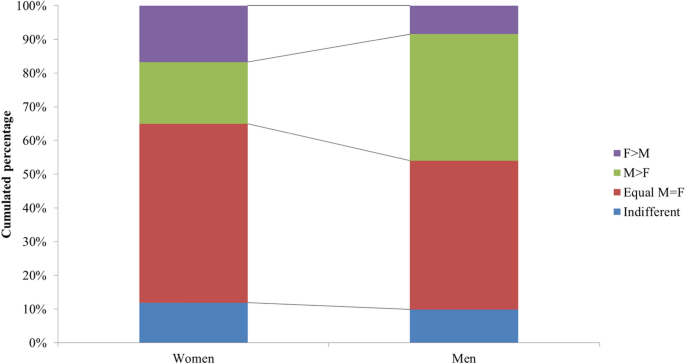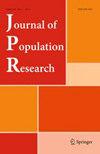南非父母的性别偏好:文化与家庭构成
IF 1.2
Q2 DEMOGRAPHY
引用次数: 0
摘要
该研究使用2016年美国国土安全部调查的答案,调查了南非父母对儿童的性别偏好。约有8514名女性和3618名男性被问及理想的家庭组成。结果显示了男女之间的主要差异:女性更倾向于冷漠(11.9%对9.9%)、平等主义,即喜欢相同数量的男孩和女孩(53.1%对43.1%)或喜欢更多的女孩(16.7%对8.4%),而男性更倾向于喜欢更多的男孩(37.6%对18.3%)。因此,女性对女孩的相对偏好比男性高4.1个百分点。调查了几个社会经济因素:城市居住、教育水平、家庭财富和媒体曝光,但对性别偏好几乎没有任何影响。相比之下,文化和种族因素很重要。白人/欧洲人对男孩的偏好更高,而黑人/非洲人对男孩和女孩的偏好几乎没有差别,就像附近的南部非洲国家一样。在各族裔群体之间,特别是祖鲁人和科萨斯人之间,可以注意到一些细微的差别。在种族层面上,婚姻,特别是一夫多妻制和家庭结构显示出与性别偏好的相关性。最后,目前的家庭构成对所陈述的偏好有影响,表明平均而言,男性和女性对其家庭的性别构成相当满意。本文章由计算机程序翻译,如有差异,请以英文原文为准。

Parental sex-preferences in South Africa: culture and family composition
Abstract The study investigates parental sex-preferences for children in South Africa, using answers to the 2016 DHS survey. Some 8514 women and 3618 men were asked about the ideal composition of their family. Results show major differences between women and men: women were more often indifferent (11.9% vs. 9.9%), equalitarian, i.e. preferring the same number of boys and girls (53.1% vs. 43.1%) or preferring more girls (16.7% vs. 8.4%) than men, while men were more likely to prefer more boys (37.6% vs. 18.3%). The relative preference for girls was therefore 4.1 larger for women than for men. Several socio-economic factors were investigated: urban residence, level of education, household wealth, and exposure to media, but had hardly any impact on sex-preferences. In contrast, cultural and ethnic factors were strong. White/European groups had higher preference for boys, while Black/African groups showed virtually no differential preference between boys and girls, like in nearby southern African countries. Some minor differences could be noted among ethnic groups, in particular among Zulus and Xhosas. At ethnic level, nuptiality, in particular polygyny, and household structure showed a correlation with sex-preferences. Lastly, current family composition had an effect on stated preferences, showing that on average men and women were rather satisfied with the sex-composition of their family.
求助全文
通过发布文献求助,成功后即可免费获取论文全文。
去求助
来源期刊

JOURNAL OF POPULATION RESEARCH
DEMOGRAPHY-
CiteScore
2.30
自引率
0.00%
发文量
18
期刊介绍:
The Journal of Population Research is a peer-reviewed, international journal which publishes papers on demography and population-related issues. Coverage is not restricted geographically. The Journal publishes substantive empirical analyses, theoretical works, applied research and contributions to methodology. Submissions may take the form of original research papers, perspectives, review articles and shorter technical research notes. Special issues emanating from conferences and other meetings are also considered.
 求助内容:
求助内容: 应助结果提醒方式:
应助结果提醒方式:


